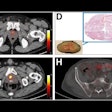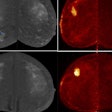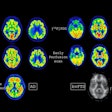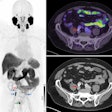
I received a number of comments concerning my last column about personalized medicine based on an individual's complete genetic structure.1 Some responses were nodding assent, while others followed the general tenor: "You don't see or don't want to see the way of progress."
Swimming with the scientific tide doesn't necessarily mean clinging to progress. Let's have a short look back in medicine, and perhaps then we can reach common ground.
 Dr. Peter Rinck, PhD, is a professor of diagnostic imaging and the president of the Council of the Round Table Foundation (TRTF) and European Magnetic Resonance Forum (EMRF).
Dr. Peter Rinck, PhD, is a professor of diagnostic imaging and the president of the Council of the Round Table Foundation (TRTF) and European Magnetic Resonance Forum (EMRF).
Not too long ago, frontal lobotomy was the latest craze in the cure of a number of psychiatric conditions -- for patients with schizophrenia, dementia, mania, anxiety, and paranoia. It's a barbaric operation -- in the early days, it was very invasive, but later the brain was reached through the eye socket. Side effects such as death were common. In the 1950s and 1960s, drug therapy slowly replaced this kind of brain surgery.
There were similar operations, such as prophylactic tonsillectomy in children, prophylactic appendectomy, and spleen removal.
How can one cure fatigue, headache, loss of appetite, and irritability? Ilya Ilyich Mechnikov received the Nobel Prize in Medicine in 1908 for his work on phagocytosis. He also believed in autointoxication caused by toxins forming in the colon, then absorbed and poisoning the body. This theory, in turn, led Sir William Arbuthnot Lane in London, as well as other surgeons, to propagate colectomies to cure this "disease." By the 1920s, they fell into disrepute as scientific advances failed to give support.2
Returning to our enlightened medical age, and research into genetics and "personalized medicine." Some time ago, the genes BRCA1 and BRCA2 were described and patented (sic!) by a company in the United States. These genes are claimed to be associated with hereditary forms of breast and ovarian cancer. Women who have inherited mutations in these genes may face a much higher risk of developing breast and ovarian cancer compared with the general population. The American Cancer Society (ACS) offers the following advice:3
Removing both breasts before cancer is diagnosed can greatly reduce the risk of breast cancer (by up to 97%). ... Some women with BRCA mutations will develop breast cancer early in life, and have a very high risk of getting a second breast cancer. Prophylactic mastectomy before the cancer occurs might add many years to their lives. But while most women with BRCA mutations develop breast cancer, some don't. These women would not benefit from the surgery, but they would still have to deal with its after effects.
And the ACS adds: "It is important that women with a BRCA mutation recognize they also have a high risk of developing ovarian cancer. Most doctors recommend that women with BRCA mutations have their ovaries surgically removed once they finish having children to lower this risk."
To be on the legally safe side, it also states:4
Genetic tests do not give precise answers about inherited diseases, especially about breast and colon cancer. A positive test result does not always mean you will get the disease. The test can tell what might happen, but it cannot tell what will happen. On the other hand, a negative result does not mean you have no risk of getting the disease.
As I see it, for "personalized medicine" based on individual genetic information, it will take decades to amass the knowledge required to make intelligent conclusions. For instance, there is the need to understand the impact of environmental factors -- epigenetic or otherwise -- for the ultimate manifestation of a multifactorial disease, even if there is a significant genetic component.
It is still completely unknown whether a constructive therapy at the root of the problem will ever be found -- which leaves the question: Does this mean that for the next generations of patients (and physicians) we might have to live with the results of half-baked, immature, and misunderstood medical treatment?
What happens if it is found that a certain gene mutation can be connected to eye tumors? Will the eyes be removed as a preventive measure? Who determines which organ is necessary and which can be disposed of? Should certain people be sterilized as it was commonplace in many countries until some time ago? Should there be prophylactic abortions?
There is a deep helplessness in this kind of solution. Going back into the dark ages of amputation and mutilation is a strange outcome of "personalized medicine."
Again, I have nothing against research and new strategies in medicine. However: Quidquid agas, prudenter agas, et respice finem, which in Latin means "Whatever you do, do cautiously, and look to the end."
References
- Rinck PA. Never mind the fashion, let's get personal. AuntMinnie Europe.com. 26 November 2012. http://www.auntminnieeurope.com/index.aspx?sec=sup&sub=mol&pag=dis&ItemID=607399.
- Chen TSN, Chen PSY. Intestinal autointoxication: A medical leitmotif. Journal of Clinical Gastroenterology. 1989;11(4):434-441. http://journals.lww.com/jcge/Abstract/1989/08000/Intestinal_Autointoxication__ A_Medical_Leitmotif.17.aspx.
- Breast Cancer. American Cancer Society website. Last revised 5 December 2012. http://www.cancer.org/cancer/breastcancer/detailedguide/breast-cancer-prevention.
- Genetic testing: What you need to know. American Cancer Society website. Last revised 6 December 2011. http://www.cancer.org/cancer/cancercauses/geneticsandcancer/genetictesting/genetic-testing-benefits-and-drawbacks.
Dr. Peter Rinck, PhD, is a professor of diagnostic imaging and the president of the Council of the Round Table Foundation (TRTF) and European Magnetic Resonance Forum (EMRF).
The comments and observations expressed herein do not necessarily reflect the opinions of AuntMinnieEurope.com, nor should they be construed as an endorsement or admonishment of any particular vendor, analyst, industry consultant, or consulting group.




















